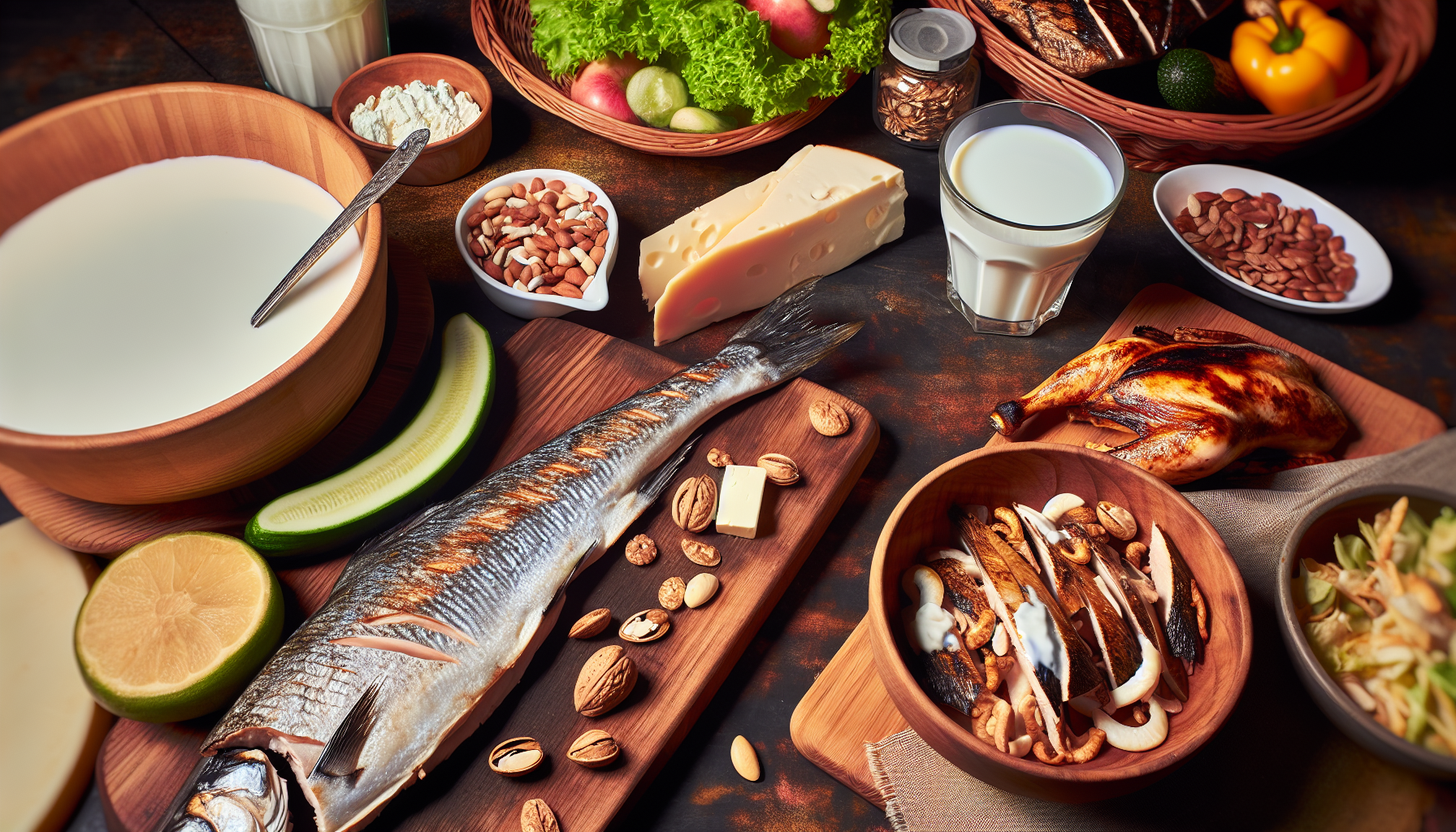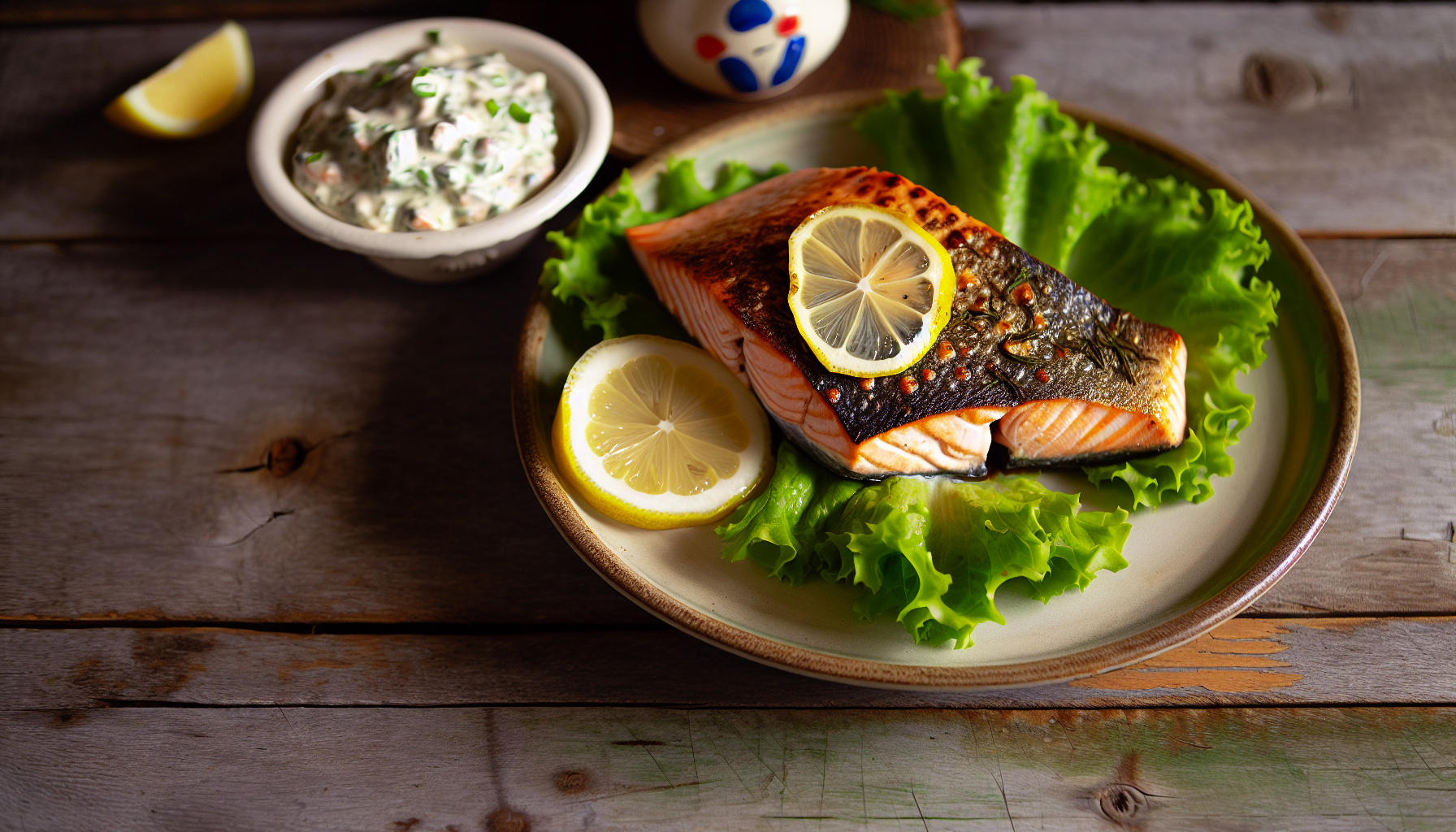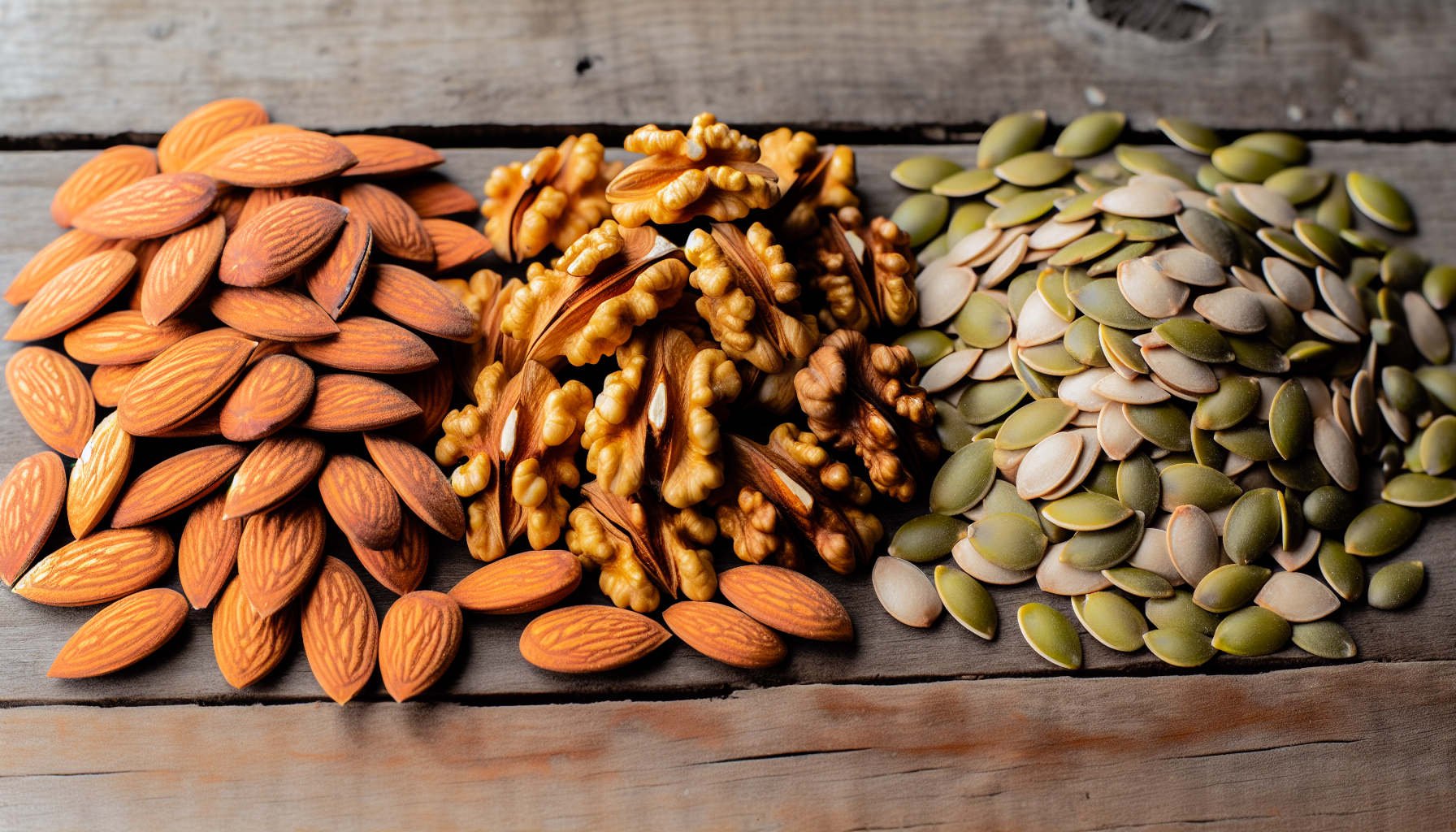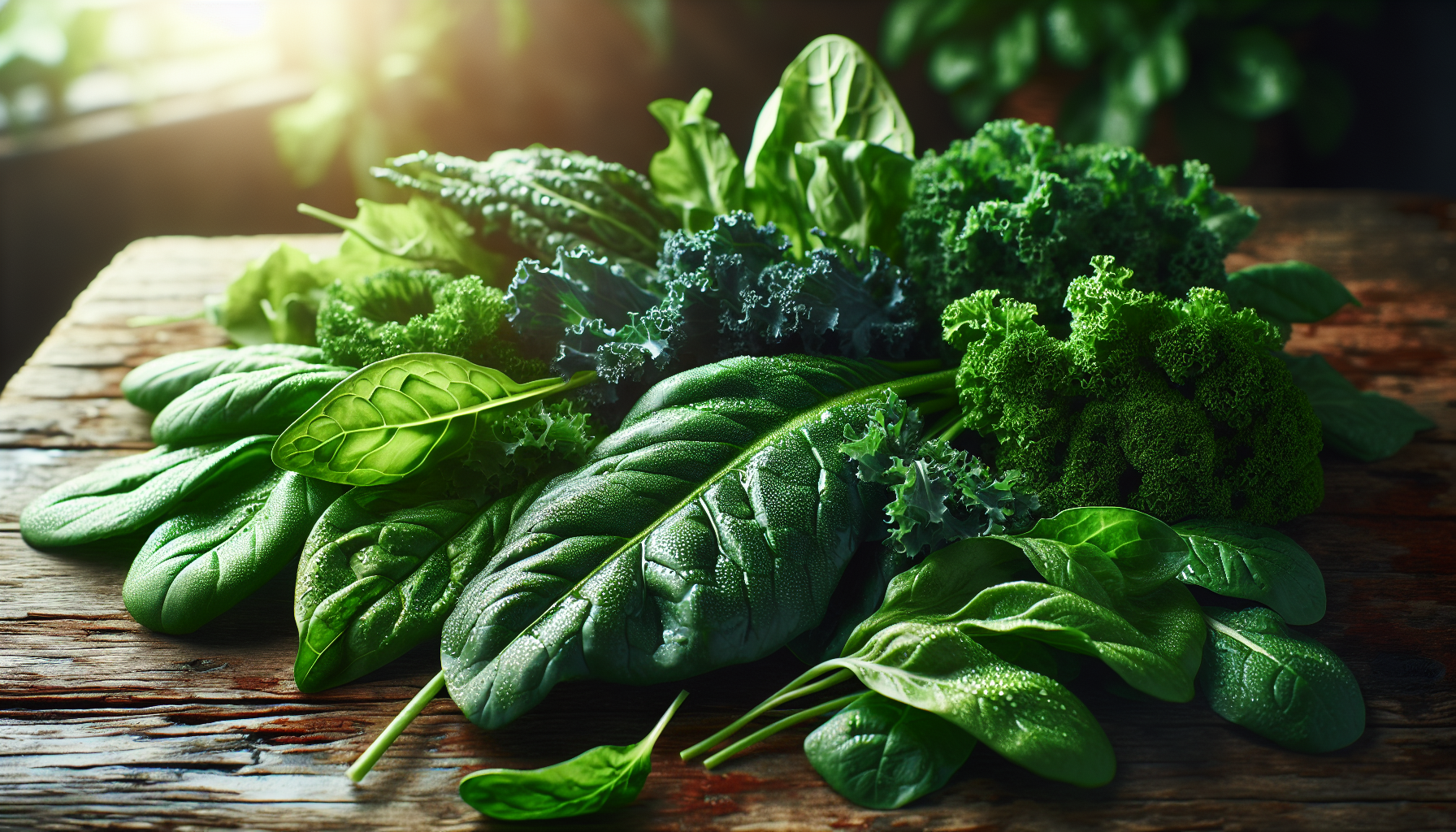Imagine if you could eat your way to a better mood with foods that boost serotonin. What if the key to resilience lies not only in the brain but also on the plate? Get to know serotonin, a powerful neurotransmitter that is crucial in regulating mood, sleep, appetite, and overall well-being.
By consuming foods that boost serotonin, you can support your central nervous system, cultivate a positive mood, and help stave off many mental health conditions, all of which help build lasting resiliency.
Key Takeaways
- Increase serotonin levels naturally with tryptophan-containing foods such as fish, poultry, dairy products, and nuts.
- Enhance mood by including leafy greens, pineapple, and probiotic-rich foods in your diet.
- Avoid artificial sweeteners and caffeine, and consult a healthcare professional before taking supplements.
The Power of Serotonin

Serotonin, primarily located in our brain, platelets, and gut, is a neurotransmitter that impacts brain function in various aspects. The gut-brain axis plays a significant role in these aspects, such as:
- learning
- memory
- sleep
- appetite
- body temperature
- sexual behavior
- emotional well-being
Selective serotonin reuptake inhibitors (SSRIs), a class of anti-depressant medications, can enhance its effects on mood and overall well-being. But what if there was a more natural way to increase serotonin levels?
Interestingly, approximately 90% of serotonin is located in our gut. Eating foods rich in tryptophan positively impacts our mental and physical well-being by helping to boost serotonin production in the gut.
The Role of Tryptophan
Tryptophan, an essential amino acid, is a precursor to serotonin, meaning our body uses it to produce serotonin. When metabolized in the body, 5% of the essential amino acid tryptophan is utilized to produce serotonin and melatonin, both crucial for mood regulation and sleep cycles.
Consumption of natural food sources abundant in tryptophan can be beneficial in increasing serotonin levels and enhancing mood.
Tryptophan Sources
Fish, particularly varieties like tuna, snapper, and cod, are substantial sources of tryptophan. A 6 oz tuna fillet can supply approximately 203% of the recommended daily intake (RDI) of tryptophan. For those who prefer poultry, turkey is known for having the highest tryptophan content, making it an exceptional source for enhancing serotonin levels.
Dairy products, like milk, are also significant sources of tryptophan. An 8-ounce glass of milk contains approximately 106 mg of tryptophan.
Nuts and seeds, with their high tryptophan content, are an excellent dietary choice for vegetarians to enhance serotonin levels in the body.
Tryptophan Absorption
The absorption of tryptophan plays a vital role in synthesizing serotonin. Here’s the process:
- Tryptophan is absorbed within the small intestinal epithelium.
- It is then transported into the bloodstream.
- It disperses to different tissues in the body.
- It crosses the blood-brain barrier.
- It participates in serotonin synthesis.
Enhancing the absorption of tryptophan can be achieved by pairing tryptophan-rich foods with nutritious carbohydrates. Eating foods high in complex carbohydrates alongside tryptophan sources promotes more effective tryptophan uptake by the body and its conversion into serotonin.
Top 10 Foods That Boost Serotonin

Having established the link between tryptophan, serotonin, and mood, let’s look at the top 10 foods that are known to boost serotonin levels. Including the following in your diet can aid in raising serotonin levels and enhancing mood and mental health:
- Fish and seafood
- Poultry
- Dairy products
- Nuts and seeds
- Eggs
- Soy and tofu
- Leafy greens
- Pineapple
- Probiotic-rich foods
- Whole grains
You can make incremental changes by adding a small portion of each serotonin-boosting food to every meal. Let’s explore each of these foods in depth and learn how they contribute to serotonin production.
Fish and Seafood

Fish and seafood are not only delicious but also packed with health benefits. They contain significant amounts of tryptophan and omega-3 fatty acids, which are crucial for elevating serotonin levels and promoting overall brain health. Some varieties that are rich sources of tryptophan include:
- Salmon
- Tuna
- Halibut
- Shrimp
These varieties effectively enhance serotonin levels.
Omega-3 fatty acids, vital for brain and mental health, are key to serotonin production. To achieve optimal serotonin enhancement, it is recommended to consume 2-3 servings of fish and seafood per week.
Poultry
Chicken and turkey are other excellent sources of tryptophan. Besides their ability to increase serotonin levels, they are known for their high protein content and are a staple in many diets.
The average 6-ounce portion of chicken breast contains 154 mg of tryptophan, so making poultry part of your daily diet will increase serotonin in the body and aid in healthy energy levels and bodily functions.
Dairy Products
Dairy products, such as milk and cheese, have significant tryptophan content. In addition to tryptophan, dairy products also contain other amino acids that contribute to overall health and well-being.
Along with milk and cheese, dairy foods like yogurt, butter, and ice cream are also rich in essential nutrients like calcium, vitamin D, and phosphorus. They not only provide the body with necessary nutrients for bone health but also play a significant role in the production of serotonin.
Furthermore, dairy products are often consumed with other foods, which enhances the absorption of tryptophan in the body. This makes dairy products an essential part of a balanced diet aimed at raising serotonin levels and enhancing mood.
Nuts and Seeds

Nuts and seeds are not only delicious snacks but also nutrient powerhouses. They contain tryptophan and healthy fats, which are beneficial for increasing serotonin levels. Some nuts and seeds with high levels of tryptophan include:
- Sesame seeds
- Cashews
- Pistachios
- Almonds
- Black walnuts
- Peanuts
- Squash seeds
- Pumpkin seeds
The consumption of seeds and nuts can enhance mood and mental health. These natural sources of protein and tryptophan are crucial for serotonin production, and their intake has been linked to reduced rates of depression and mood disorders.
Eggs
Eggs are considered to be an excellent source of tryptophan and protein. One large egg contains an estimated 77 mg of tryptophan.
With their rich tryptophan content, we can incorporate eggs into the diet to boost serotonin levels. To get more eggs in your diet, try eating hard-boiled eggs on salads or lightly scrambled eggs on whole wheat toast.
Soy and Tofu
Soy and tofu, two versatile plant-based foods, are not only packed with protein but also substantial sources of tryptophan. A half cup of tofu, for instance, contains approximately 296 milligrams of tryptophan, while one cup of soybeans boasts about 270 milligrams of tryptophan.
Both soy and tofu are incredibly adaptable and are good additions to various dishes, from stir-fries to desserts and smoothies. Their neutral taste makes them perfect for soaking up flavors, and their high tryptophan content makes them a great choice for those looking to boost their serotonin levels naturally.
Leafy Greens

Dark green leafy vegetables like spinach and kale are also rich in tryptophan. They also contain nutrients like B vitamins, magnesium, and folate, which aid in serotonin production and can have a positive impact on serotonin levels in the body.
Various cooking methods for greens include:
- blanching
- boiling
- frying
- steaming
Cooking can alter the tryptophan levels in leafy greens. Some studies suggest that thermal processing may lead to an increase in these levels, but additional research is necessary to confirm this.
Pineapple
Pineapple is abundant in tryptophan. Besides tryptophan, pineapple also contains bromelain, an enzyme that aids in the elevation of serotonin levels through the inhibition of CYP2C9, an enzyme responsible for serotonin metabolism.
Probiotic-Rich Foods
Fermented foods like sauerkraut and kimchi are rich in probiotics, which can enhance gut health and facilitate serotonin production. Probiotics contribute to the production of serotonin by elevating the levels of beneficial gut bacteria.
Fermentation plays a crucial role in the contribution to the probiotic content of foods by enabling beneficial bacteria to:
- Convert sugars and starches into lactic acid
- Create an environment conducive to the multiplication of these bacteria
- Ultimately leading to the production of probiotic-rich foods.
Whole Grains
Whole grains facilitate serotonin production mainly by their complex carbohydrate content, which aids in the absorption of tryptophan by the brain, a precursor to serotonin. Examples of whole grains that have the potential to enhance serotonin production include rice, oatmeal, and whole-grain bread.
Additional Strategies for Boosting Serotonin
Apart from diet, other natural methods can also aid in boosting serotonin levels. Regular exercise, for instance, can release stores of tryptophan into the bloodstream, thereby naturally increasing bodily serotonin.
Moreover, exposure to sunlight has a substantial impact on the increase of serotonin levels, making it beneficial to regularly receive exposure to natural sunlight. Other natural techniques like light therapy and a high-fiber diet can contribute to increasing serotonin levels.
Foods to Avoid
While certain foods help to boost serotonin levels, others can have the opposite effect. Artificial sweeteners like aspartame have demonstrated the ability to decrease serotonin levels, which are pivotal in regulating mood and anxiety.
Excessive consumption of caffeine can result in an imbalance of serotonin by decreasing the synthesis of brain serotonin.
Alcohol can influence serotonin production, too. Although it can lead to a temporary surge in serotonin levels, which can be hazardous, research indicates that in regular individuals, alcohol consumption does not elevate brain serotonin levels.
Restricting or abstaining from alcohol, artificial sweeteners, and excessive caffeine can assist in upholding healthy serotonin levels and preventing mood imbalances.
Expert Advice on Supplements
While supplements (paid link) can help boost serotonin levels, it’s recommended to consult with a healthcare professional before incorporating tryptophan or other serotonin-enhancing supplements to ensure their safety and efficacy.
Some supplements known to enhance serotonin production include:
- Pure tryptophan
- SAMe
- St. John’s Wort
- 5-HTP
The supplementation of tryptophan has the potential to elevate serotonin levels.
Incorporate These Foods That Boost Serotonin in Your Diet
In conclusion, maintaining a balanced diet rich in tryptophan, regular exercise, and adequate exposure to sunlight are effective ways to naturally boost serotonin levels.
This, in turn, positively affects mood, mental health, and resilience. It helps aid in healing from medical conditions, traumatic events, and more, and is a great addition to mindfulness practices like meditation and yoga.
However, remember that it’s always best to consult with a healthcare professional before making any drastic changes to your diet or supplementing with serotonin-boosting compounds.
Frequently Asked Questions
What food has the most serotonin?
Nuts, salmon, poultry, eggs, spinach, seeds, milk, and soy products are all natural sources of serotonin.
How can I increase my serotonin levels quickly?
Increase serotonin levels quickly by eating foods high in the amino acid tryptophan, getting more exposure to sunlight, exercising regularly, managing stress, and taking supplements after consulting with your doctor.
What depletes serotonin?
Genetics, stress, chronic pain, and nutritional deficiencies can cause serotonin deficiencies. Low serotonin levels can lead to disrupted sleep, lack of sexual desire, low mental energy levels, and depressive disorders.
What does serotonin do?
Serotonin is a chemical in the brain that helps improve mood, sleep, and overall well-being. It is often referred to as the ‘feel good’ chemical, as low levels of serotonin can be associated with depression and major depressive disorder. Medicines that increase serotonin levels are used to help with depression.
What is serotonin, and where can we find it in the body?
Serotonin is a neurotransmitter found in the brain, platelets, and enterochromaffin cells of the gut, playing a crucial role in regulating mood, sleep, appetite, and overall health.
Have you tried increasing your serotonin levels with foods that boost serotonin?
Have you incorporated serotonin-boosting foods into your diet to improve your mood?
What was your experience like?
Please tell us about it in the comment section!




























0 Comments